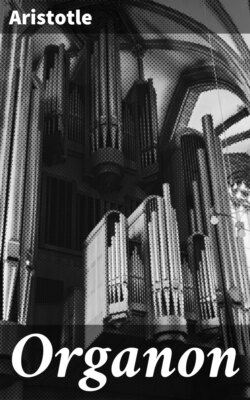Читать книгу Organon - Aristotle - Страница 8
На сайте Литреса книга снята с продажи.
Chapter 4
ОглавлениеTable of Contents
First then let us examine of what this method consists. If therefore we assume for how many, what kind of, and from what things, arguments are constructed, and how we may be well provided with these, we shall sufficiently gain our point. Now those things are equal and the same in number from which arguments are constructed, and about which syllogisms are conversant; for arguments are constructed of propositions, but the things with which syllogisms are conversant are problems. Now every proposition and every problem shows either genus, property, or accident; for difference, being generic, we must place together with genus. Since however of property, one kind signifies the very nature of a thing, but the other does not signify it, let property be divided into the two above-named parts, and let what signifies the very nature of a thing be called definition, but let the other, according to the common appellation attributed about these, be called property. Now it is clear from what we have said, that according to the present division it happens that all are four, either property, or definition, or genus, or accident. Let however no one suppose that we say that each of these asserted by itself is a proposition or a problem, but that problems and propositions are produced from these. Still a problem and a proposition differ in mode, since when it is thus said, is a pedestrian biped animal the definition of man? and is animal the genus of man? there is a proposition, but if (it should be said), whether is a pedestrian biped animal the definition of man or not? there is a problem. So also in other things. Wherefore with propriety problems and propositions are equal in number, for from every proposition you will make a problem by changing the mode.
